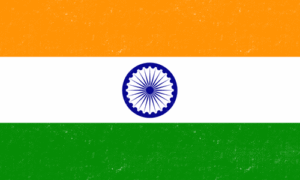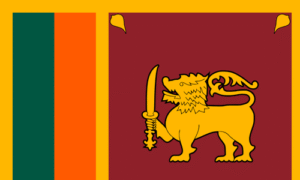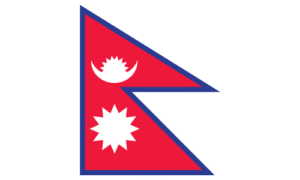Navigating the complexities of divorce in Nepal requires professional legal assistance. A divorce lawyer in Nepal specializes in family law matters, particularly the dissolution of marriage according to Nepali legal frameworks. Whether you’re considering divorce, already in the process, or dealing with post-divorce issues, understanding the legal landscape and having proper representation is crucial for protecting your rights and interests.
Understanding Divorce Laws in Nepal
Legal Framework for Divorce in Nepal
Divorce in Nepal is primarily governed by the National Civil Code 2017 (Muluki Dewani Samhita, 2074), which replaced the previous Muluki Ain. This comprehensive legislation outlines the grounds for divorce, procedures, and consequences of marital dissolution. According to Section 94 of the National Civil Code, both husbands and wives have equal rights to seek divorce under specified conditions.
The legal framework for divorce in Nepal varies slightly depending on whether the marriage was registered under civil law or conducted according to religious or customary practices. However, the National Civil Code has harmonized many of these provisions to ensure consistency in legal proceedings.
For marriages registered under civil law, the divorce process typically follows a more straightforward legal procedure. The Civil Code provides clear guidelines on filing petitions, grounds for divorce, and the division of property, making it essential for divorce lawyers to have a thorough understanding of these provisions.
Grounds for Divorce in Nepal
Under Nepali law, divorce can be obtained on several grounds as specified in the National Civil Code. These include:
- Mutual consent: When both parties agree to divorce, they can jointly file a petition.
- Adultery: If either spouse has engaged in extramarital relations.
- Physical or mental cruelty: Including domestic violence or severe emotional abuse.
- Desertion: If one spouse has abandoned the other for a continuous period (typically three years or more).
- Serious mental illness: If one spouse suffers from a mental condition that makes continuing the marriage impossible.
- Impotence or infertility: In cases where these conditions existed before marriage and were not disclosed.
- Separate living: If the couple has lived separately for three consecutive years.
- Imprisonment: If one spouse has been sentenced to imprisonment for a serious crime.
According to Section 97 of the National Civil Code, a husband or wife may file for divorce if the spouse has caused severe physical or mental pain by inflicting physical torture or mental harassment. This provision specifically addresses domestic violence as grounds for divorce.
Types of Divorce Procedures in Nepal
In Nepal, divorce proceedings generally fall into two categories:
- Contested Divorce: When one party initiates divorce proceedings without the other’s consent. This type of divorce requires proving one or more of the legally recognized grounds for divorce and often involves lengthy court proceedings.
- Uncontested Divorce: When both parties mutually agree to divorce. According to Section 96 of the National Civil Code, couples can file for divorce by mutual consent, which typically results in a faster and less complicated process.
For uncontested divorces, the procedure is relatively straightforward. Both parties submit a joint petition to the court, and after a mandatory waiting period (usually 35 days), the court grants the divorce decree if both parties maintain their decision.
Contested divorces, however, involve more complex legal procedures, including:
- Filing a petition by one spouse
- Serving notice to the respondent spouse
- Filing a response by the respondent
- Evidence gathering and presentation
- Court hearings and arguments
- Final judgment by the court
The timeline for contested divorces can range from several months to years, depending on the complexity of the case and the court’s caseload.
Role of a Divorce Lawyer in Nepal
Key Responsibilities of Divorce Attorneys
A divorce lawyer in Nepal performs several crucial functions throughout the divorce process:
- Legal consultation: Providing initial advice on divorce options, procedures, and potential outcomes based on the client’s specific situation.
- Documentation preparation: Drafting and filing all necessary legal documents, including divorce petitions, property division agreements, and child custody arrangements.
- Representation in court: Advocating for the client’s interests during court proceedings, presenting arguments, and cross-examining witnesses.
- Negotiation: Facilitating discussions between parties to reach settlements on property division, alimony, child custody, and other contentious issues.
- Legal research: Analyzing relevant laws, precedents, and court decisions to strengthen the client’s case.
- Mediation assistance: Guiding clients through alternative dispute resolution processes when appropriate.
Divorce lawyers must stay updated on changes in family law legislation and court procedures. They work closely with clients to understand their priorities and develop strategies that protect their legal rights while minimizing emotional and financial strain.
According to the Nepal Bar Council regulations, all practicing lawyers must be registered with the Council and adhere to professional ethics standards. When selecting a divorce lawyer, clients should verify these credentials to ensure proper representation.
Expertise in Property Division and Settlement
One of the most complex aspects of divorce in Nepal involves the division of marital property and assets. A skilled divorce lawyer provides expertise in:
- Identifying and valuing marital assets and liabilities
- Determining separate property that should remain with the original owner
- Negotiating fair distribution of jointly owned property
- Protecting business interests and investments
- Addressing inheritance issues and family property
- Handling retirement benefits and pension divisions
Under the National Civil Code, property division follows specific principles. Section 105 states that property acquired during the marriage through joint efforts is considered joint property and should be divided equally between spouses upon divorce. However, inherited property, gifts, and assets owned before marriage typically remain with the original owner.
Divorce lawyers help navigate these complex provisions, ensuring that clients receive their fair share of marital assets while protecting their separate property rights. They also assist in documenting property settlements to prevent future disputes.
Child Custody and Support Guidance
When children are involved in divorce proceedings, determining custody arrangements and support obligations becomes a critical component of the case. Divorce lawyers in Nepal provide essential guidance on:
- Custody options: Including sole custody, joint custody, and visitation rights
- Child support calculations: Based on income, needs of the child, and standard of living
- Parenting plans: Developing comprehensive arrangements for child-rearing responsibilities
- Education decisions: Addressing schooling choices and educational expenses
- Healthcare provisions: Ensuring children’s medical needs are covered
- Religious upbringing: Addressing cultural and religious considerations in child-rearing
The National Civil Code prioritizes the “best interests of the child” principle in custody decisions. Section 111 specifically states that custody determinations should consider the child’s age, wishes (if old enough to express them), and overall welfare.
Divorce lawyers help parents navigate these sensitive issues, advocating for arrangements that serve the children’s best interests while protecting their client’s parental rights. They also assist in modifying custody and support orders when circumstances change.
Choosing the Right Divorce Lawyer in Nepal
Qualifications and Experience to Look For
When selecting a divorce lawyer in Nepal, consider these essential qualifications and experience factors:
- Legal education: A law degree from a recognized university in Nepal or abroad
- Bar Council registration: Valid membership with the Nepal Bar Council
- Specialization in family law: Specific focus and experience in divorce and family matters
- Years of practice: Substantial experience handling divorce cases
- Court experience: Familiarity with district courts, appellate courts, and Supreme Court procedures
- Track record: History of successful case outcomes and client satisfaction
- Continuing education: Ongoing professional development in family law
According to the Nepal Bar Council Act, 2050 (1993), all practicing lawyers must have completed a law degree and passed the Bar Council examination. They must also maintain their registration through continuing legal education and adherence to professional standards.
Experience in handling cases similar to yours is particularly important. A lawyer who regularly practices in the specific district court where your case will be heard will have valuable insights into local procedures and judicial preferences.
Communication and Accessibility Factors
Effective communication between client and attorney is essential for successful divorce representation. Consider these factors when evaluating potential divorce lawyers:
- Language proficiency: Ability to communicate in your preferred language (Nepali, English, or other local languages)
- Responsiveness: Promptness in returning calls and emails
- Availability for meetings: Flexible scheduling options for consultations
- Clear explanations: Ability to explain complex legal concepts in understandable terms
- Listening skills: Willingness to hear your concerns and priorities
- Regular updates: Commitment to keeping you informed about case developments
- Technology use: Utilization of digital communication tools when appropriate
The initial consultation provides an opportunity to assess these communication factors. Pay attention to how the lawyer explains the divorce process and responds to your questions. A good divorce lawyer should make you feel comfortable discussing sensitive personal matters while maintaining professional boundaries.
Fee Structures and Payment Options
Understanding the financial aspects of legal representation is crucial when hiring a divorce lawyer in Nepal. Common fee arrangements include:
- Hourly rates: Charging based on time spent on your case (common for contested divorces)
- Flat fees: Fixed amounts for specific services or the entire case (more common for uncontested divorces)
- Retainer arrangements: Advance payment held in trust and billed against as work progresses
- Installment plans: Payment schedules that allow fees to be paid over time
- Consultation fees: Charges for initial meetings (some lawyers offer free consultations)
According to the Nepal Bar Council regulations, lawyers must provide clear information about their fees and billing practices. Request a written fee agreement that outlines:
- Exact services covered
- Additional costs (court filing fees, document preparation, expert witnesses)
- Billing frequency and methods
- Circumstances that might affect the total cost
While cost is an important consideration, it shouldn’t be the only factor in your decision. The least expensive lawyer may not provide the quality representation needed for complex divorce cases. Consider the value offered in terms of expertise, service, and potential outcomes.
The Divorce Process in Nepal
Filing for Divorce: Step-by-Step Procedure
The process of filing for divorce in Nepal follows these general steps:
- Initial consultation with a lawyer: Discuss your situation, options, and potential outcomes.
- Preparation of divorce petition: Your lawyer drafts the petition stating grounds for divorce and desired relief.
- Filing the petition: The petition is submitted to the district court with jurisdiction over your place of residence.
- Payment of court fees: Required fees must be paid at the time of filing.
- Service of process: The court issues a summons to be served on your spouse, notifying them of the divorce action.
- Response period: Your spouse has 21 days (as per court rules) to file a response to the petition.
- Preliminary hearing: The court schedules an initial hearing to identify contested issues.
- Mediation referral: In many cases, the court refers parties to mandatory mediation before proceeding.
- Evidence gathering: Both parties collect and present evidence supporting their claims.
- Trial proceedings: If settlement isn’t reached, the court conducts hearings to resolve disputed issues.
- Final judgment: The court issues a divorce decree specifying terms of property division, custody, and support.
- Appeal period: Either party has 35 days to appeal the decision to a higher court if desired.
For uncontested divorces based on mutual consent, the process is simplified. According to Section 96 of the National Civil Code, both parties file a joint petition, and after a 35-day waiting period (during which either party can withdraw consent), the court grants the divorce if both parties maintain their decision.
Timeline and Court Procedures
The duration of divorce proceedings in Nepal varies significantly based on several factors:
- Type of divorce: Uncontested divorces typically take 2-3 months, while contested cases can extend to 1-2 years or longer.
- Court caseload: Busier courts may have longer scheduling delays.
- Complexity of issues: Cases involving substantial assets, businesses, or complicated custody matters take longer.
- Cooperation between parties: Willingness to negotiate and reach agreements expedites the process.
- Procedural delays: Document gathering, witness availability, and administrative issues can extend timelines.
Court procedures follow specific protocols established by the Civil Procedure Code and court rules. These include:
- Formal filing requirements for all documents
- Specific formats for petitions and responses
- Rules of evidence for admissibility of testimony and documents
- Procedural timelines for responses and appearances
- Protocols for examination and cross-examination of witnesses
Your divorce lawyer navigates these procedural requirements, ensuring compliance with court rules and strategic timing of filings. They also prepare you for court appearances, explaining protocols and expectations for testimony and hearings.
Post-Divorce Legal Considerations
After the divorce decree is issued, several legal matters may require ongoing attention:
- Enforcement of judgments: If your ex-spouse fails to comply with property division, support, or custody orders, legal enforcement actions may be necessary.
- Modification of orders: Changed circumstances may warrant adjustments to custody, visitation, or support arrangements.
- Property transfers: Formal transfers of real estate, vehicles, and other assets must be completed according to the divorce decree.
- Name change procedures: If you wish to resume your pre-marriage name, specific legal steps must be followed.
- Tax implications: Divorce creates significant tax consequences that should be addressed with financial advisors.
- Estate planning updates: Wills, beneficiary designations, and other estate documents should be revised post-divorce.
According to Section 115 of the National Civil Code, either party can petition the court for modification of child custody or support orders if there has been a substantial change in circumstances affecting the child’s welfare.
A divorce lawyer can provide continuing legal support for these post-divorce matters, ensuring that your rights remain protected and that all parties comply with court orders. They can also coordinate with other professionals, such as accountants and financial advisors, to address the broader implications of your divorce settlement.
Special Considerations in Nepali Divorce Cases
International Marriage and Divorce Issues
Divorces involving international elements present unique challenges in Nepal:
- Jurisdiction questions: Determining which country’s courts have authority to grant divorce
- Recognition of foreign marriages: Establishing the validity of marriages performed abroad
- Enforcement of foreign divorce decrees: Implementing orders issued by courts in other countries
- Immigration consequences: Addressing visa and residency issues affected by divorce
- International child custody: Navigating cross-border parenting arrangements
- Property located abroad: Dividing assets in multiple countries
Nepal is not a signatory to the Hague Convention on the Recognition of Divorces and Legal Separations, which can complicate the recognition of Nepali divorces in some foreign jurisdictions. Similarly, foreign divorces must meet specific criteria to be recognized in Nepal.
Divorce lawyers with experience in international cases can navigate these complexities, coordinating with foreign counsel when necessary and advising on the most advantageous jurisdiction for filing. They also help ensure that divorce decrees will be recognized and enforceable in relevant countries.
Cultural and Religious Factors in Nepali Divorces
Nepal’s diverse cultural and religious landscape influences divorce proceedings in several ways:
- Hindu marriage traditions: Traditional Hindu marriages may involve religious ceremonies that some believe create spiritual bonds beyond legal dissolution.
- Buddhist perspectives: Buddhist communities may approach divorce with emphasis on compassionate resolution and minimal harm.
- Muslim personal law: Muslim citizens may follow aspects of Islamic law regarding divorce, including concepts like talaq and khula.
- Indigenous practices: Various ethnic groups maintain traditional approaches to marriage dissolution that may operate alongside formal legal processes.
- Dowry considerations: The return or retention of dowry property can be a significant issue in some communities.
- Family honor concerns: Social stigma around divorce may influence negotiation positions and privacy preferences.
While the National Civil Code provides a unified legal framework for divorce, courts often show sensitivity to cultural and religious factors when appropriate. Section 108 specifically acknowledges that customs and traditions may be considered in certain aspects of divorce proceedings, provided they don’t contradict statutory provisions.
Experienced divorce lawyers understand these cultural nuances and can advocate effectively within both legal and cultural contexts, helping clients navigate community expectations while protecting their legal rights.
Domestic Violence and Divorce in Nepal
Domestic violence significantly impacts divorce proceedings in Nepal and requires specialized legal handling:
- Protective orders: Obtaining court orders to prevent continued abuse during divorce proceedings
- Evidence documentation: Properly recording and presenting evidence of abuse
- Safety planning: Coordinating with support services for secure housing and protection
- Impact on custody: Addressing how abuse affects parenting arrangements and child safety
- Property considerations: Ensuring victims aren’t financially penalized when leaving abusive situations
- Expedited proceedings: Seeking accelerated court timelines in dangerous situations
The Domestic Violence (Crime and Punishment) Act, 2066 (2009) provides specific legal protections for victims of domestic violence. Section 6 of this Act allows courts to issue interim protective orders during pending cases, which can be crucial during divorce proceedings.
Additionally, Section 97 of the National Civil Code specifically recognizes physical torture or mental harassment as grounds for divorce, strengthening the legal position of domestic violence survivors seeking marital dissolution.
Divorce lawyers who specialize in cases involving domestic violence understand the intersection of family law and domestic violence legislation. They work closely with advocacy organizations and can connect clients with support services while providing trauma-informed legal representation.
Conclusion
Navigating divorce in Nepal requires understanding complex legal frameworks, procedural requirements, and cultural considerations. A qualified divorce lawyer provides essential guidance through this challenging process, protecting your rights and interests while working toward fair resolutions.
When selecting legal representation for your divorce, prioritize experience in Nepali family law, effective communication skills, and a clear understanding of fee structures. The right attorney will not only handle legal technicalities but also provide compassionate support during this significant life transition.
For personalized legal assistance with divorce matters in Nepal, contact Axion Partners. Our experienced family law attorneys offer comprehensive representation tailored to your specific situation, ensuring professional guidance throughout the divorce process.
READ MORE:
- Alimony Law and Lawyer in Nepal
- Divorce Lawyer Fees in Nepal
- How to Get Mutual Divorce in Nepal
- Can Wife Claim Husband Property After Divorce in Nepal
- Online Divorce Process in Nepal
- Cost of Divorce in Nepal
- Laws of Divorce in Nepal: How to Get Divorce
- Divorce Paper in Nepal
- Divorce Lawyer in Nepal
- Divorce Process in Nepal: Divorce Law in Nepal



























